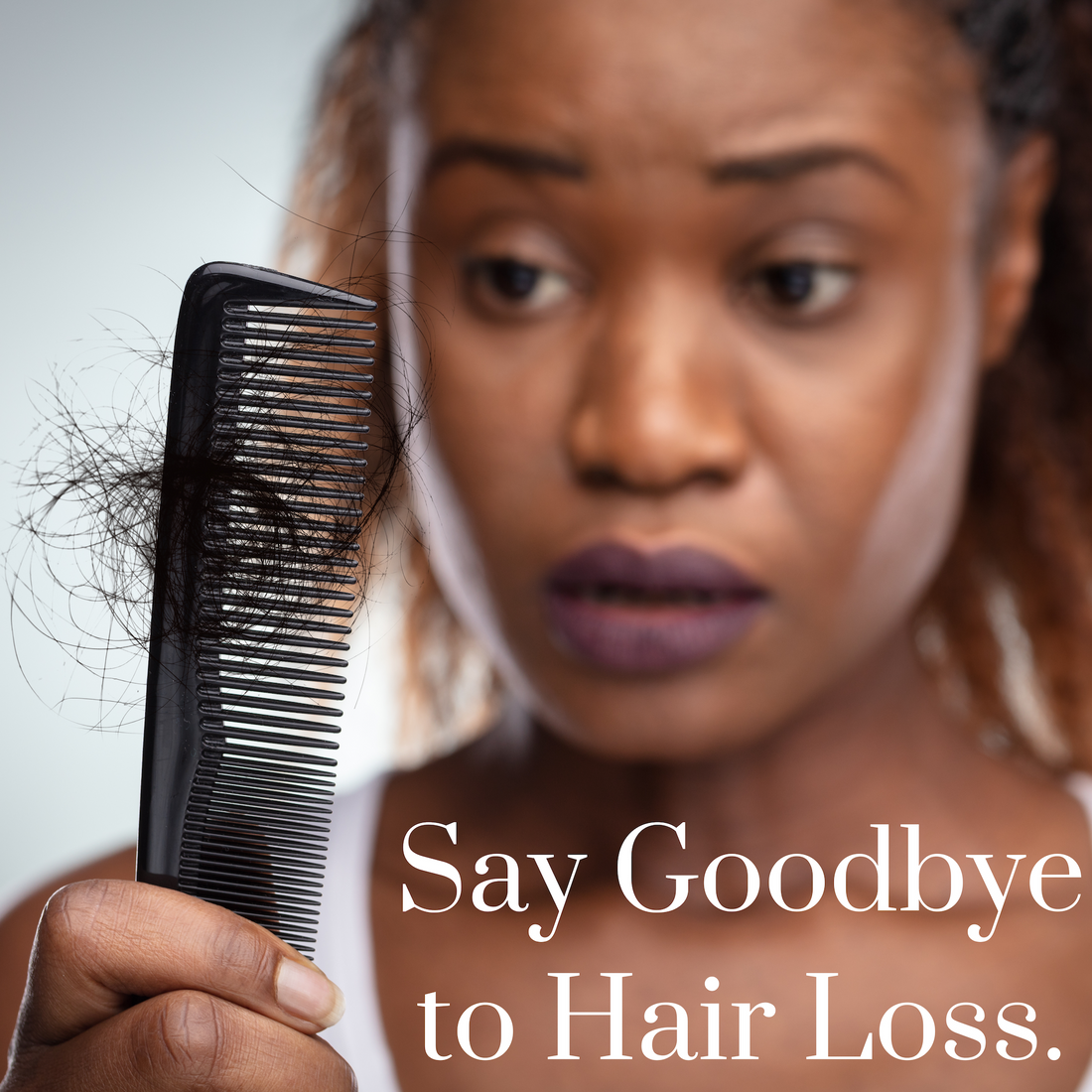Understanding Hair Loss: Common Causes and Solutions

Hair loss can be a distressing experience for both men and women. Whether it's a few extra strands in the shower drain or noticeable thinning on the scalp, it's natural to wonder, "Why is my hair falling out?" In this blog post, we will explore the most common causes of hair loss and discuss potential solutions to help you better understand and address this concern.
1. Genetic Factors:
One of the leading causes of hair loss is genetics. Androgenetic alopecia, also known as pattern baldness, affects both men and women. In men, it typically results in a receding hairline and balding on the crown, while women may experience overall thinning. Genetic hair loss occurs when hair follicles become sensitive to dihydrotestosterone (DHT), a hormone derived from testosterone. Although it is challenging to prevent genetic hair loss entirely, various treatments can slow down its progression or help regrow hair.
2. Hormonal Imbalances:
Hormonal imbalances can disrupt the normal hair growth cycle, leading to increased hair shedding. Conditions such as polycystic ovary syndrome (PCOS) in women, thyroid disorders, and hormonal changes during pregnancy or menopause can contribute to hair loss. Managing underlying hormonal imbalances through medication or lifestyle changes, under the guidance of a healthcare professional, may help mitigate hair loss.
3. Nutritional Deficiencies:
A well-balanced diet is crucial for healthy hair growth. Inadequate intake of essential nutrients like iron, zinc, biotin, and vitamins A, C, D, and E can lead to hair loss. Crash diets, restrictive eating patterns, and certain medical conditions affecting nutrient absorption can all contribute to nutritional deficiencies. Ensuring a nutrient-rich diet or considering supplementation can help address deficiencies and promote hair health.
4. Physical and Emotional Stress:
Stress can take a toll on our bodies in various ways, and hair loss is no exception. Physical stressors such as surgery, a severe illness, or a traumatic event can trigger a condition called telogen effluvium, where a large number of hair follicles enter a resting phase prematurely. Emotional stress, including anxiety and depression, can also disrupt the hair growth cycle. Managing stress through relaxation techniques, exercise, therapy, and self-care can aid in minimizing hair loss caused by stress.
5. Scalp Conditions and Hair Care Practices:
Certain scalp conditions, such as dandruff, psoriasis, or fungal infections, can contribute to hair loss. Additionally, excessive use of heat styling tools, tight hairstyles (e.g., ponytails, braids), chemical treatments, and harsh hair care products can damage the hair shaft and weaken follicles. Maintaining a healthy scalp through regular cleansing and avoiding damaging hair practices can promote healthier hair growth.
6. Medications and Medical Treatments:
Certain medications, including chemotherapy drugs, blood thinners, antidepressants, and anticonvulsants, can cause hair loss as a side effect. If you suspect that medication is contributing to your hair loss, consult your healthcare provider to explore alternative options. Similarly, some medical treatments like radiation therapy can lead to temporary or permanent hair loss in the treated area.
Understanding the causes of hair loss is the first step toward finding appropriate solutions. It's essential to identify the underlying cause of your hair loss and consult with healthcare professionals or dermatologists for accurate diagnosis and personalized treatment options. Whether it's genetic factors, hormonal imbalances, nutritional deficiencies, stress, scalp conditions, or medication side effects, there are various solutions available to address and manage hair loss effectively. Remember, early intervention and a holistic approach to hair care can greatly improve the health and vitality of your hair.

